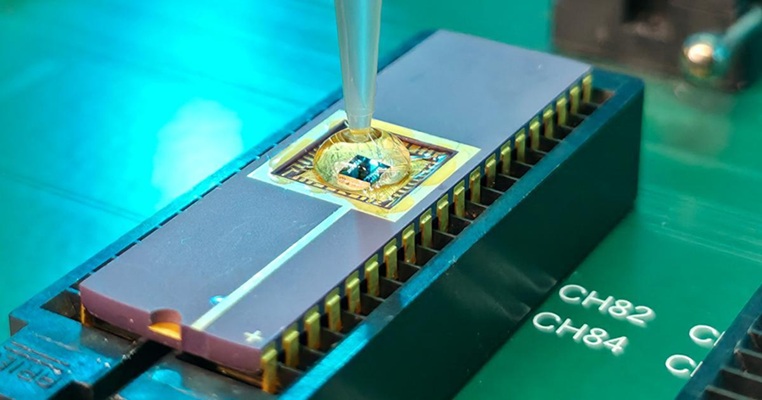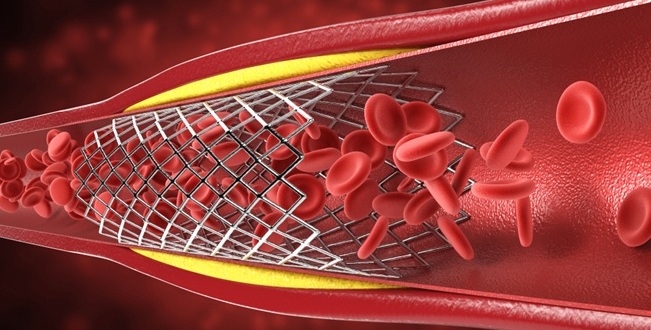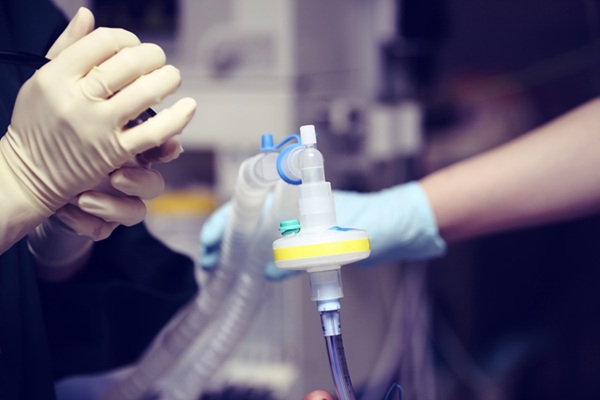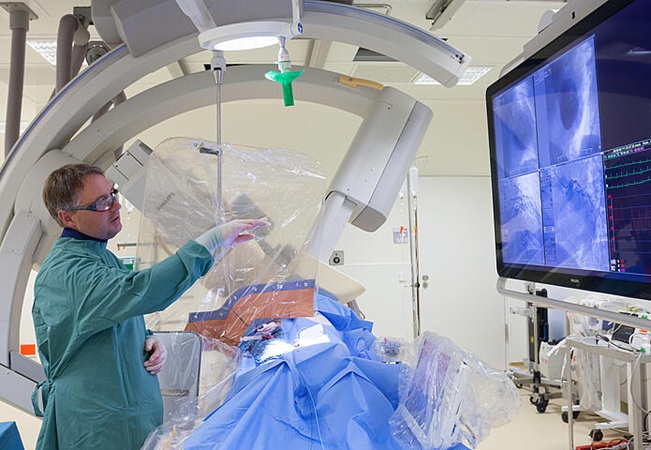Maternal Iron Intake Linked to Autism Risk
|
By HospiMedica International staff writers Posted on 28 Sep 2014 |
A new study reveals that mothers of children with autism spectrum disorder (ASD) are less likely to have taken iron supplements before and during their pregnancies.
Researchers at the University of California Davis (UCD; USA) and the UCD Mind Institute Clinic (Sacramento, CA, USA) analyzed data from 866 mother-child pairs who were enrolled in the Childhood Autism Risks from Genetics and the Environment (CHARGE) study between 2002 and 2009; of these, 520 were diagnosed with ASD. The researchers recorded frequency and dosages of maternal iron intake during pregnancy and breastfeeding, including from breakfast cereals, vitamins, and other nutritional supplements.
The results showed that there was a five-fold greater risk in children whose mothers had low supplemental iron and other risk factors for delivering a child with ASD. The association between lower maternal iron intake and increased ASD risk was strongest during breastfeeding (after adjustment for folic acid intake). The risk associated with low maternal iron intake was also greater when the mother was older than 35 years and had metabolic conditions during her pregnancy, such as obesity hypertension or diabetes. The study was published on September 22, 2014, in the American Journal of Epidemiology.
“Iron deficiency, and its resultant anemia, is the most common nutrient deficiency, especially during pregnancy, affecting 40 to 50 percent of women and their infants,” said lead author Rebecca Schmidt, PhD, an assistant professor in the UCD department of public health sciences and affiliated with the MIND Institute. “Iron is crucial to early brain development, contributing to neurotransmitter production, myelination, and immune function. All three of these pathways have been associated with autism.”
ASD affects 6 per 1,000 children, and occurs more often among boys than girls. ASD affect three different areas of a child's life: social interaction, communication (both verbal and nonverbal), and behaviors and interests. The three main types of ASD are Asperger's syndrome, pervasive developmental disorder, not otherwise specified (PDD-NOS), and autistic disorder. The DSM-5 also included two rare but severe autistic-like conditions - Rett syndrome and childhood disintegrative disorder.
Related Links:
University of California Davis
UCD Mind Institute Clinic
Researchers at the University of California Davis (UCD; USA) and the UCD Mind Institute Clinic (Sacramento, CA, USA) analyzed data from 866 mother-child pairs who were enrolled in the Childhood Autism Risks from Genetics and the Environment (CHARGE) study between 2002 and 2009; of these, 520 were diagnosed with ASD. The researchers recorded frequency and dosages of maternal iron intake during pregnancy and breastfeeding, including from breakfast cereals, vitamins, and other nutritional supplements.
The results showed that there was a five-fold greater risk in children whose mothers had low supplemental iron and other risk factors for delivering a child with ASD. The association between lower maternal iron intake and increased ASD risk was strongest during breastfeeding (after adjustment for folic acid intake). The risk associated with low maternal iron intake was also greater when the mother was older than 35 years and had metabolic conditions during her pregnancy, such as obesity hypertension or diabetes. The study was published on September 22, 2014, in the American Journal of Epidemiology.
“Iron deficiency, and its resultant anemia, is the most common nutrient deficiency, especially during pregnancy, affecting 40 to 50 percent of women and their infants,” said lead author Rebecca Schmidt, PhD, an assistant professor in the UCD department of public health sciences and affiliated with the MIND Institute. “Iron is crucial to early brain development, contributing to neurotransmitter production, myelination, and immune function. All three of these pathways have been associated with autism.”
ASD affects 6 per 1,000 children, and occurs more often among boys than girls. ASD affect three different areas of a child's life: social interaction, communication (both verbal and nonverbal), and behaviors and interests. The three main types of ASD are Asperger's syndrome, pervasive developmental disorder, not otherwise specified (PDD-NOS), and autistic disorder. The DSM-5 also included two rare but severe autistic-like conditions - Rett syndrome and childhood disintegrative disorder.
Related Links:
University of California Davis
UCD Mind Institute Clinic
Latest Patient Care News
- Revolutionary Automatic IV-Line Flushing Device to Enhance Infusion Care
- VR Training Tool Combats Contamination of Portable Medical Equipment
- Portable Biosensor Platform to Reduce Hospital-Acquired Infections
- First-Of-Its-Kind Portable Germicidal Light Technology Disinfects High-Touch Clinical Surfaces in Seconds
- Surgical Capacity Optimization Solution Helps Hospitals Boost OR Utilization

- Game-Changing Innovation in Surgical Instrument Sterilization Significantly Improves OR Throughput
- Next Gen ICU Bed to Help Address Complex Critical Care Needs
- Groundbreaking AI-Powered UV-C Disinfection Technology Redefines Infection Control Landscape
- Clean Hospitals Can Reduce Antibiotic Resistance, Save Lives
- Smart Hospital Beds Improve Accuracy of Medical Diagnosis
- New Fast Endoscope Drying System Improves Productivity and Traceability
- World’s First Automated Endoscope Cleaner Fights Antimicrobial Resistance
- Portable High-Capacity Digital Stretcher Scales Provide Precision Weighing for Patients in ER
- Portable Clinical Scale with Remote Indicator Allows for Flexible Patient Weighing Use
- Innovative and Highly Customizable Medical Carts Offer Unlimited Configuration Possibilities
- Biomolecular Wound Healing Film Adheres to Sensitive Tissue and Releases Active Ingredients
Channels
Critical Care
view channel
Earlier Blood Transfusion Could Reduce Heart Failure and Arrhythmia in Heart Disease Patients
Blood loss during or after surgery can place significant stress on people with heart disease, increasing the risk of dangerous complications. Transfusions are often delayed until hemoglobin levels fall... Read more
'Smart' Shirt Detects Epileptic Seizures in Real Time
Epilepsy affects roughly one in every 100 people worldwide, causing seizures that can range from subtle episodes to severe convulsions and loss of consciousness. These events arise from excessive electrical... Read moreSurgical Techniques
view channel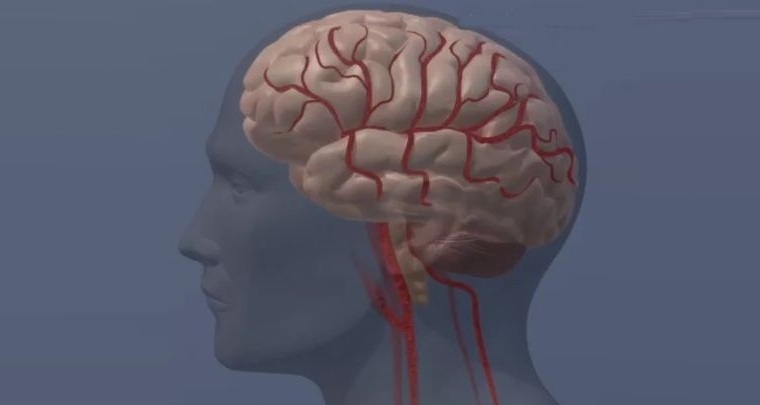
Ablation Reduces Stroke Risk Associated with Atrial Fibrillation
Atrial fibrillation (AFib) greatly increases the risk of stroke, blood clots, heart failure, and death, and millions of people in the U.S. are expected to be affected in the coming years.... Read more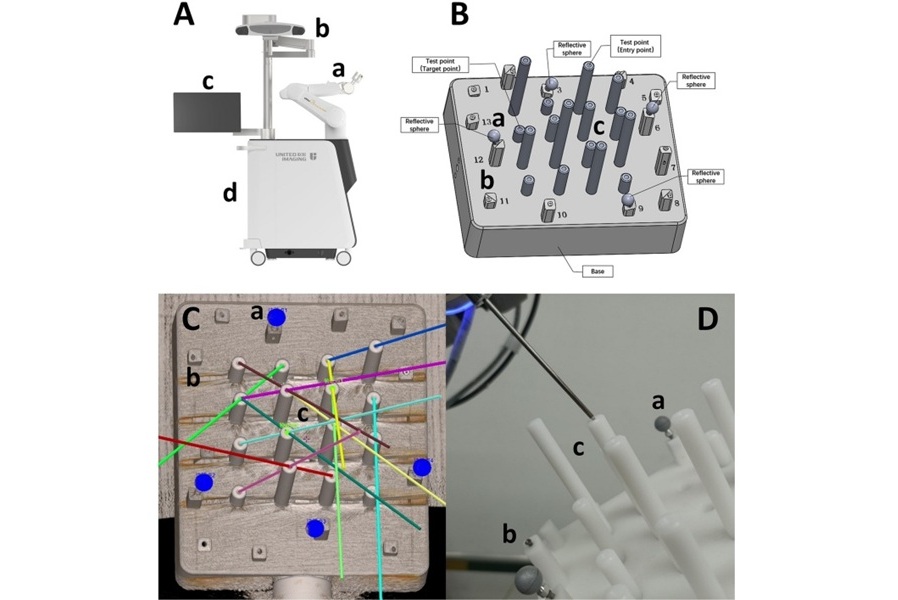
Optical Tracking Method Identifies Target Areas in Robot-Assisted Neurosurgery
Epilepsy occurs when nerve cells misfire and produce uncontrolled electrical bursts in the brain, leading to seizures. While most patients respond to medication, about 30% require more advanced intervention.... Read moreHealth IT
view channel
Printable Molecule-Selective Nanoparticles Enable Mass Production of Wearable Biosensors
The future of medicine is likely to focus on the personalization of healthcare—understanding exactly what an individual requires and delivering the appropriate combination of nutrients, metabolites, and... Read moreBusiness
view channel
Philips and Masimo Partner to Advance Patient Monitoring Measurement Technologies
Royal Philips (Amsterdam, Netherlands) and Masimo (Irvine, California, USA) have renewed their multi-year strategic collaboration, combining Philips’ expertise in patient monitoring with Masimo’s noninvasive... Read more
B. Braun Acquires Digital Microsurgery Company True Digital Surgery
The high-end microsurgery market in neurosurgery, spine, and ENT is undergoing a significant transformation. Traditional analog microscopes are giving way to digital exoscopes, which provide improved visualization,... Read more
CMEF 2025 to Promote Holistic and High-Quality Development of Medical and Health Industry
The 92nd China International Medical Equipment Fair (CMEF 2025) Autumn Exhibition is scheduled to be held from September 26 to 29 at the China Import and Export Fair Complex (Canton Fair Complex) in Guangzhou.... Read more











